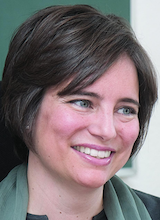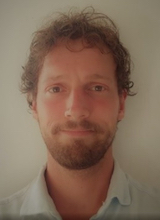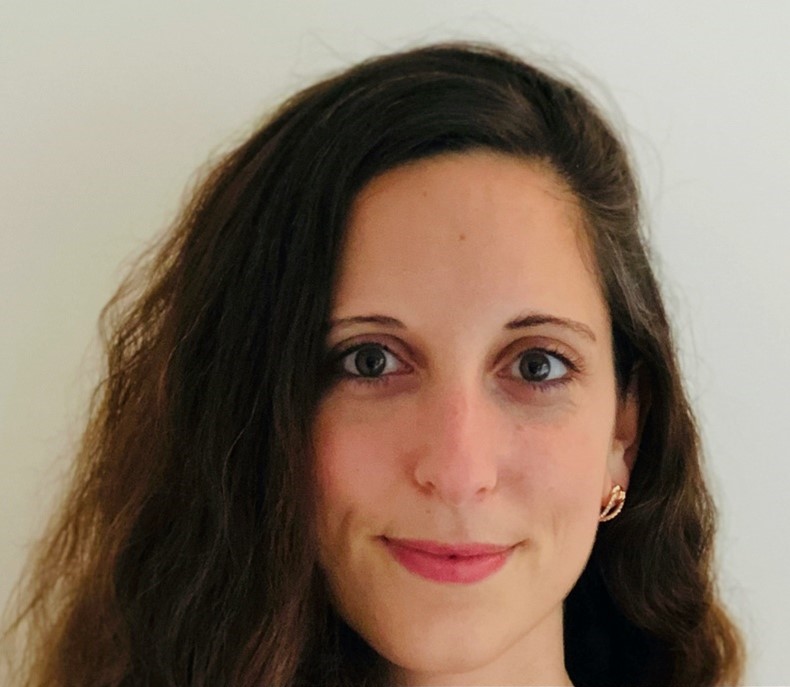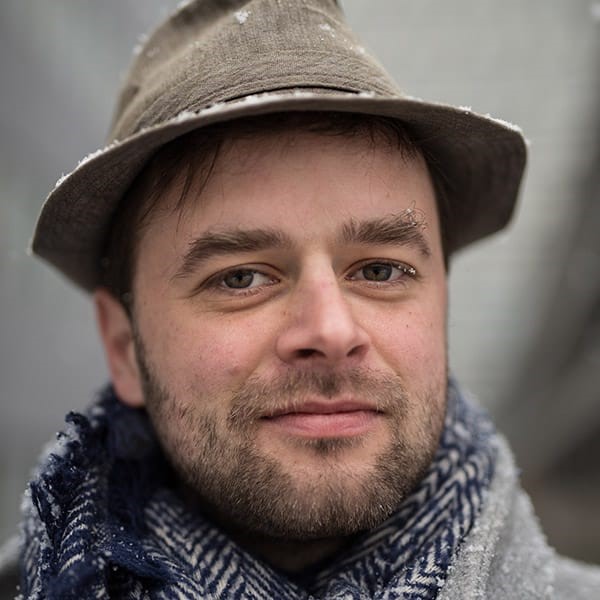Editorial board

Amalia Amaya
Amalia Amaya is Research Fellow at the Institute for Philosophical Research at the National Autonomous University of Mexico and British Academy Global Professor at Edinburgh Law School. She holds an LLM and a PhD from the European University Institute and an LLM and a SJD from Harvard Law School. She works primarily in philosophy of law, with a particular focus on legal reasoning and epistemology, although she is also interested in some issues in moral and political theory as well as international normative theory. She is the author of The Tapestry of Reason: An Inquiry into the Nature of Coherence and its Role in Legal Argument (Hart Publishing, 2015). She is currently working on three, related, projects. Her main research project is on law, virtue and character. More specifically, she is working on a book manuscript that develops a virtue approach to legal reasoning and judicial ethics. On this topic, she has also co-edited Law, Virtue and Justice (with Ho Hock Law, 2012), The Faces of Virtue in Law (with Claudio Michelon, 2020) and Virtue, Emotion and Imagination in Law and Legal Reasoning (with Maksymilian Del Mar, 2020). In addition, she also interested in exploring the role of exemplarity in contemporary legal and political culture and, specially, its implications for problems concerning the nature of authority. Finally, she is engaged on research on the relevance of fraternity as a legal and political ideal.
Personal website: https://www.law.ed.ac.uk/people/amalia-amaya-navarro
E-mail address: amalia.amaya@ed.ac.uk

Lukas van den Berge
Lukas van den Berge (PhD Utrecht 2016) wrote his dissertation on the theory of Dutch administrative law and is a frequent contributor on that subject to leading Dutch journals of public law and general jurisprudence. Recently, he published ‘Responsief bestuursrecht’, a longer essay on the future of Dutch administrative law written on request of the Dutch Society of Administrative Law (VAR). An article applying Foucault’s concept of governmentality to Dutch administrative law was recognized by the Dutch Lawyers Association (NJV) as one of the three best articles on Dutch law written in 2017 and 2018.
In international publications, Van den Berge’s research focuses on the history and theory of public law and law and humanities. Recent publications include articles on Schmitt and Agamben (2019), the future of the public-private law divide (2018), the intellectual history and the future of the doctrine of separation of powers (2017) and an article on the jurisprudence of Greek tragedy (2017). Click here for more.
A connecting theme in his writings is the idea that law is a contextual phenomenon that needs to be studied in its broader societal, cultural and economic environment.
Personal website: https://www.uu.nl/medewerkers/LvandenBerge.
E-mail address: l.vandenberge@uu.nl

Laura Davies (editorial secretary)
Laura Davies is a legal scholar with a broad interest in legal philosophy, ethical legal decision-making, and the changing role of the judge.
After finishing the Legal Research Master at Utrecht University (cum laude) she now works as a PhD candidate and teacher at the department of legal philosophy at Radboud University. Her PhD-research is about the legitimacy of the judge. In order to unravel this complex and elusive concept, she looks at the different perspectives on legal legitimacy that have been dominant in the Netherlands over the past century. By analyzing how these perspectives interrelate, she aims to reach a more integral and substantive understanding of this concept that can help to improve legal legitimacy in a more structural way.
Personal website: https://www.ru.nl/personen/berg-l-m-van-den/
E-mail address: laura.davies@ru.nl

Iris van Domselaar (editor-in-chief)
Iris van Domselaar holds a chair in Legal Philosophy and Legal Ethics at the Amsterdam Law School and is founding director of the Amsterdam Centre on the Legal Professions and Access to Justice. Van Domselaar’s research addresses the question how best to account for ethics in legal practice. Drawing on neo-Aristotelian and neo-Wittgensteinian strands within practical and legal philosophy and on social-empirical research, Van Domselaar seeks to come to grips with ethics as ‘lived experience’ on the part of legal professionals and of citizens who are involved in legal procedures. She has published on topics such as tragic dilemmas and moral remainders in legal practice, judicial virtues, the ethics of corporate lawyering, courage of legal professionals, and moral perception in legal practice. Currently, she collaborates in the nation-wide interdisciplinary consortium The Algorithmic Society with a project that focuses on digitalisation in the justice sector and the ramifications for the ethics of legal professionals.
Personal website: https://www.uva.nl/profiel/d/o/i.vandomselaar/i.vandomselaar.html?cb
E-mail address: i.vandomselaar@uva.nl

Niels Graaf
Niels Graaf is a legal scholar and historian. Graaf is an Assistant professor of Constitutional Law at the University of Amsterdam. Before to his arrival in Amsterdam, he was affiliated with the Royal Dutch Institute in Rome, the Erasmus University Rotterdam and Utrecht University. He held visiting positions at the Center for Global Constitutionalism, Wissenschaftszentrum Berlin für Sozialforschung, the Facolta di Studi Umanistici, L’Università degli Studi Roma Tre and the Dipartimento di Diritto Costituzionale dell’Alma Mater Studiorum - Università di Bologna. He widely published on (comparative) constitutional law and culture and the history of legal ideas in Dutch and English.
Personal website: https://www.uva.nl/profiel/g/r/n.graaf/n.graaf.html
E-mail address: n.graaf@uva.nl

Laura Henderson
Dr. Laura Henderson is a judge-in-training at the District Court Midden-Nederland and an associated researcher at the Montaigne Centre for Rule of Law and Administration of Justice. Dr. Henderson obtained her PhD in legal philosophy from the Vrije Universiteit Amsterdam with a dissertation entitled Courts, Crisis and Contestation: Democratic Judicial Decision-Making in Times of Crisis. She studied law and anthropology at the University College Utrecht and has her LL.B and LL.M from the University of Utrecht, where she specialized in international law and human rights. Before starting her traineeship as a judge, Dr. Henderson was an Assistant Professor at Utrecht University and was a visiting fellow at the University of California, Berkeley and at the European University Institute in Florence, Italy. In 2021 she won the Wiarda Prize for her article Internalizing Contestation in Process-Based Judicial Review.
Personal website: https://www.uu.nl/medewerkers/LMHenderson1
E-mail address: l.m.henderson@uu.nl

Bastiaan Rijpkema
Bastiaan Rijpkema is Professor of Jurisprudence and Endowed Professor of Tolerance at Leiden University, the Netherlands. His main research interests are at the intersection of law and democratic theory, political philosophy, and militant democracy. The English edition of his Dutch monograph on militant democracy, Weerbare democratie (2015), is published as Militant Democracy: The Limits of Democratic Tolerance (2018) with Routledge in their ‘Extremism and Democracy’ series. For his research on militant democracy he won the Prinsjesboekenprijs 2016 (for the best political book of the year) and the New Scientist Science Talent-prijs 2017. Among his recent publications is a Special Section for the European Constitutional Law Review on ‘Militant Democracy, Populism, Illiberalism’.
Personal website: https://www.universiteitleiden.nl/medewerkers/bastiaan-rijpkema
E-mail address: b.r.rijpkema@law.leidenuniv.nl

Nathalie Smuha
Nathalie Smuha is a legal scholar and philosopher at the KU Leuven Faculty of Law, where she examines legal and ethical questions around artificial intelligence and other digital technologies. Her research focuses particularly on the impact of AI on human rights, democracy and the rule of law. She is the academic coordinator of the KU Leuven Summer School on the Law, Ethics and Policy of AI, and a member of the Leuven.AI Institute and the Digital Society Institute. Previously, she has held visiting positions at the University of Chicago Law School and at the University of Birmingham Law School. She has also taken up an Emile Noël Fellowship at the New York University School of Law. Her work has been the recipient of several awards, and she is a sought-after speaker at academic conferences and events. Besides her academic activities, Nathalie Smuha regularly advises governments and international organizations on AI policy. She coordinated the work of the European Commission’s High-Level Expert Group on AI which drafted Europe’s Ethics Guidelines for Trustworthy AI, and she was a scientific expert in the Council of Europe’s (Ad Hoc) Committee on AI which is developing a new AI Convention. Nathalie Smuha holds degrees in law (BA, MA, PhD from KU Leuven; LL.M. from the University of Chicago) and in philosophy (BA, MA from KU Leuven). She is a qualified attorney and a member of the New York Bar.
Personal website: https://ai.kuleuven.be/members/00117274
E-mail address: nathalie.smuha@kuleuven.be

Martijn Stronks
Martijn Stronks studied law and philosophy at the Vrije Universiteit Amsterdam and Cape Town University, South Africa. After his studies he became Editor-in-Chief of the migration law journal Migrantenrecht and its successor Asiel&Migrantenrecht. Between 1 september 2012 and 31 augustus 2016 he wrote a legal and philosophical dissertation on the role of time in European migration law. His book ‘Grasping Legal Time. Temporality and European Migration Law’, that was based on this dissertation appeared in the Cambridge Asylum and Migration Studies Series. Martijn Stronks has published legal and philosophical articles on unlawfully residing migrants, regularizations, asylum, criminal migrants in a wide variety of scientific and popular journals and in newspapers. He focusses in his current research on the human right to time. Martijn has extensively written for NRC, a Dutch newspaper and regularly contributes to De Groene Amsterdammer, a Dutch weekly. Martijn is working as Associate Professor at the Amsterdam Centre for Migration and Refugee Law of the Vrije Universiteit Amsterdam.
VU Research page: https://research.vu.nl/en/persons/martijn-stronks
Personal website: www.martijnstronks.nl
E-mail address: m.c.stronks@vu.nl
Members of the advisory board
- Philip Pettit (Princeton University, USA and Australian National University, Australia)
- Bonnie Honig (Brown University, USA)
- Neil Walker (University of Edinburgh, UK)
- Kristen Rundle (The University of Melbourne, Australia)
- Steven Winter (Wayne State University, USA)
- Dorien Pessers (VU University Amsterdam, NL)
- Gunther Teubner (Goethe University, Germany)
- Wibren van der Burg (Erasmus University Rotterdam, NL)
- Serge Gutwirth (Vrije Universiteit Brussel, Belgium)
- Ton Hol (Utrecht University, NL)
- Marc Loth (Tilburg University, NL)
- Jan Smits (Maastricht University, NL)
- Thomas Mertens (Nijmegen, NL)
Contact
Please contact the editorial board through the editorial secretary, Laura Davies: laura.davies@ru.nl.
